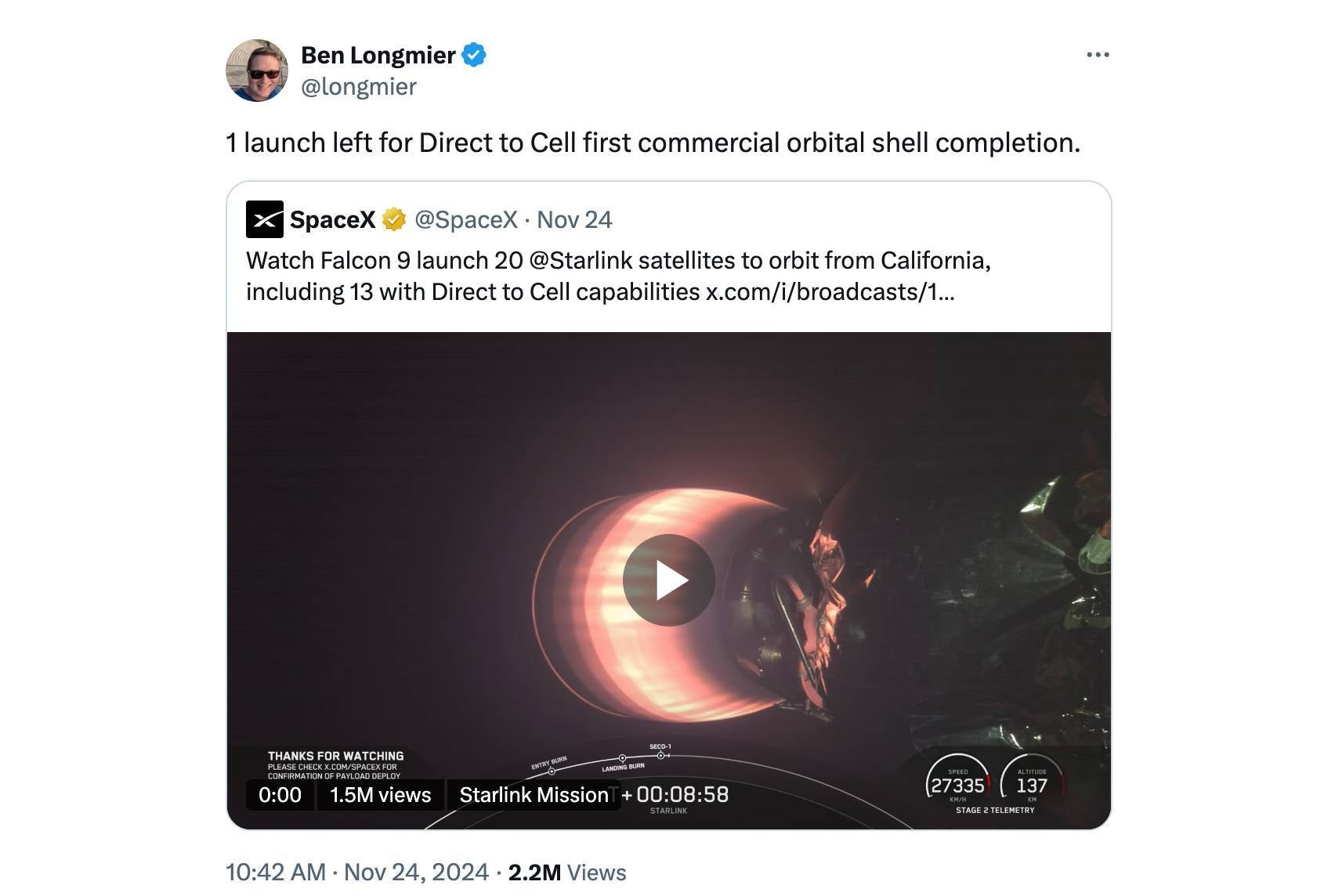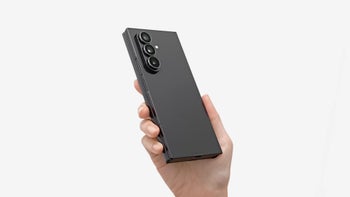FCC allows T-Mobile to launch satellite service; SpaceX says beta about to kick off [UPDATED]

Update from November 26, 2024
More details have now emerged regarding T-Mobile and SpaceX's Direct to Cell service.
The FCC says that SpaceX has been authorised to operate 7,500 Gen2 Starlink satellites. The Commission has yet to decide on granting a waiver of the aggregate out-of-band power flux-density (PFD) limit of -120 dBW/m2/MHz.
The FCC says that allowing SpaceX to operate satellites in lower altitude shells will allow the company to provide lower-latency satellite service in rural and remote areas where terrestrial wireless service is not available. At the same time, it will allow the Commission to evaluate previously raised issues.
SpaceX says that employee beta service will soon be activated in the US.
The FCC says that SpaceX has been authorised to operate 7,500 Gen2 Starlink satellites. The Commission has yet to decide on granting a waiver of the aggregate out-of-band power flux-density (PFD) limit of -120 dBW/m2/MHz.
The original story from November 26, 2024 follows below:
The Federal Communications Commission (FCC) has finally given the go-ahead to T-Mobile and SpaceX to provide supplemental coverage from space to bring connectivity to dead zones.

SpaceX will be ready to launch the Direct to Cell service after one more launch. | Image Credit - Ben Longmier, X
The two companies had originally planned to launch space-based texting before the end of 2024 but it was increasingly looking like that wouldn't be possible chiefly due to SpaceX's insistence that the FCC relax its aggregate power flux-density PFD limit. This was opposed by competitors, who said that a change in the limit would interfere with their operations.
While it's not known if the FCC has agreed to bend its rules, it's likely that SpaceX's role in restoring connectivity during communications blackouts caused by recent hurricanes in the US may have helped it demonstrate that the waiver it requested wouldn't harm adjacent-band terrestrial networks.
Alternatively, it's possible that T-Mobile will adhere to the current out-of-band emissions limits, although this may impact the quality of service.
Regardless. this is an important step and now that approval has been granted, we may see T-Mobile roll out satellite texting before the end of the year.
A T-Mobile exec had previously revealed that the service wouldn't have the same restrictions as other satellite-powered features that require you to have a clear view of the sky to establish a connection. This means that it will work mostly everywhere, including when you are traveling and your phone is in your pocket.
Follow us on Google News













Things that are NOT allowed:
To help keep our community safe and free from spam, we apply temporary limits to newly created accounts: